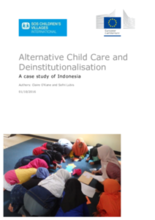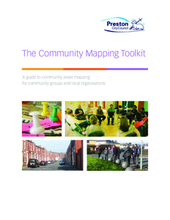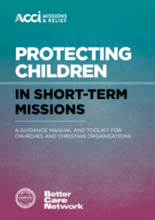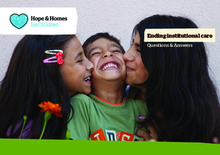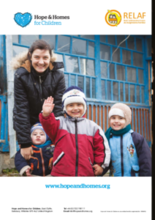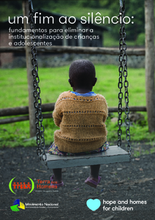Displaying 3271 - 3280 of 4431
As in years past, some recipients of CNN’s 2015 Heroes Awards included “ill-advised but well-meaning” people who have been involved in building and operating orphanages in developing countries. By including those running orphanages among its recipients, CNN is perpetuating the incorrect idea that orphanages are a safe place for children.
RISE Learning Network, an organization that promotes learning on recovery and reintegration approaches that improve outcomes for children and adolescents affected by sexual exploitation, will be hosting a webinar on 14 January 2016 from
This article describes growing skepticism around the value of "voluntourists" for local communities around the work, and many NGOs are questioning the unregulated industry that brings many young, unqualified westerners to developing countries. Often, volunteers are ineffective in providing help to communities, and sometimes can even pose danger to the community members or themselves.
This report is a case study of alternative child care in Indonesia. Research was conducted that found that with an estimate of 8,000 institutional facilities servicing 500,000 children, Indonesia was overly reliant on institutional care.
This toolkit explains the process behind asset mapping, looks at how to carry out a Community Street Audit, provides advice on making asset mapping meaningful and ensuring it leads to constructive action, and on involving different sections of the community - including community residents, elected councillors and representatives from local services. Finally it looks at the tools you may need, and how to keep community and local agencies informed of any action plans arising from the asset mapping.
The Child Protection in Short-Term Missions Manual and Toolkit has been produced by ACC International Missions and Relief. It has been designed for those who are passionate about missions and engaging people in missions through short-term teams, who pursue excellence in all they do and who are committed to pursuing God’s heart for children and vulnerable members of society in the context of global missions.
This tool was designed to help those seeking to assist Christian faith-based actors involved in long-term residential care programs make the transition from institutional to non-institutional (family and community-based) child welfare programs. It was written to give some insight into what this journey called ‘deinstitutionalisation’ might look like and what steps and processes might be involved. Whilst it contains a brief overview of the technical stages, its main purpose is to guide you through the process of achieving buy-in and is not intended to be a technical deinstitutionalisation manual.
This publication includes common questions and answers on the implications of institutional care and why it should be ended.
Décadas de investigaciones comprueban que el crecimiento de un niño en una institución posee un impacto nocivo en cuanto a lo psicológico, lo emocional y lo físico, incluyendo trastornos de vinculación, retrasos cognitivos y en el desarrollo, y una falta de capacidades sociales y para la vida que luego concluyen en múltiples desventajas durante la adultez.
Décadas de pesquisas comprovam que o crescimento em instituições de acolhida gera consequências psicológicas, emocionais e físicas, incluindo transtornos de apego, atrasos cognitivos e no desenvolvimento, e uma falta de habilidades sociais e de competências para a vida, trazendo diversas desvantagens na idade adulta.

